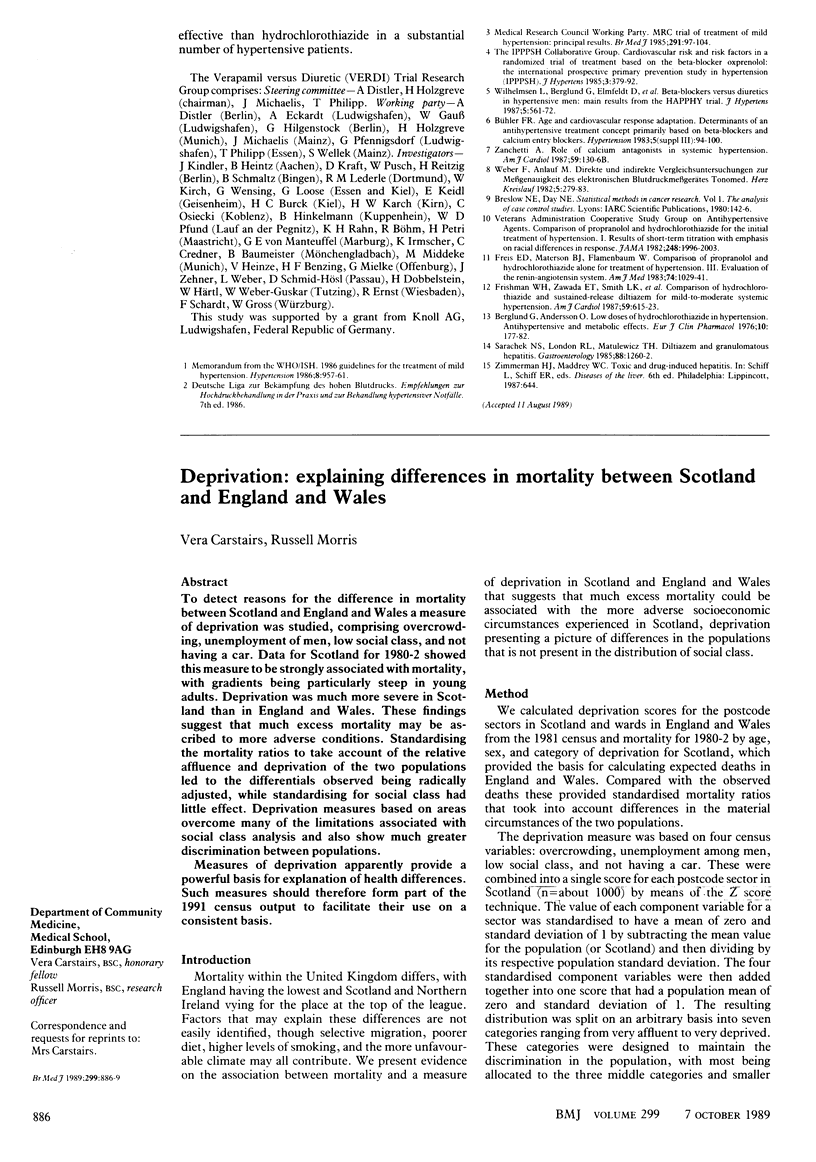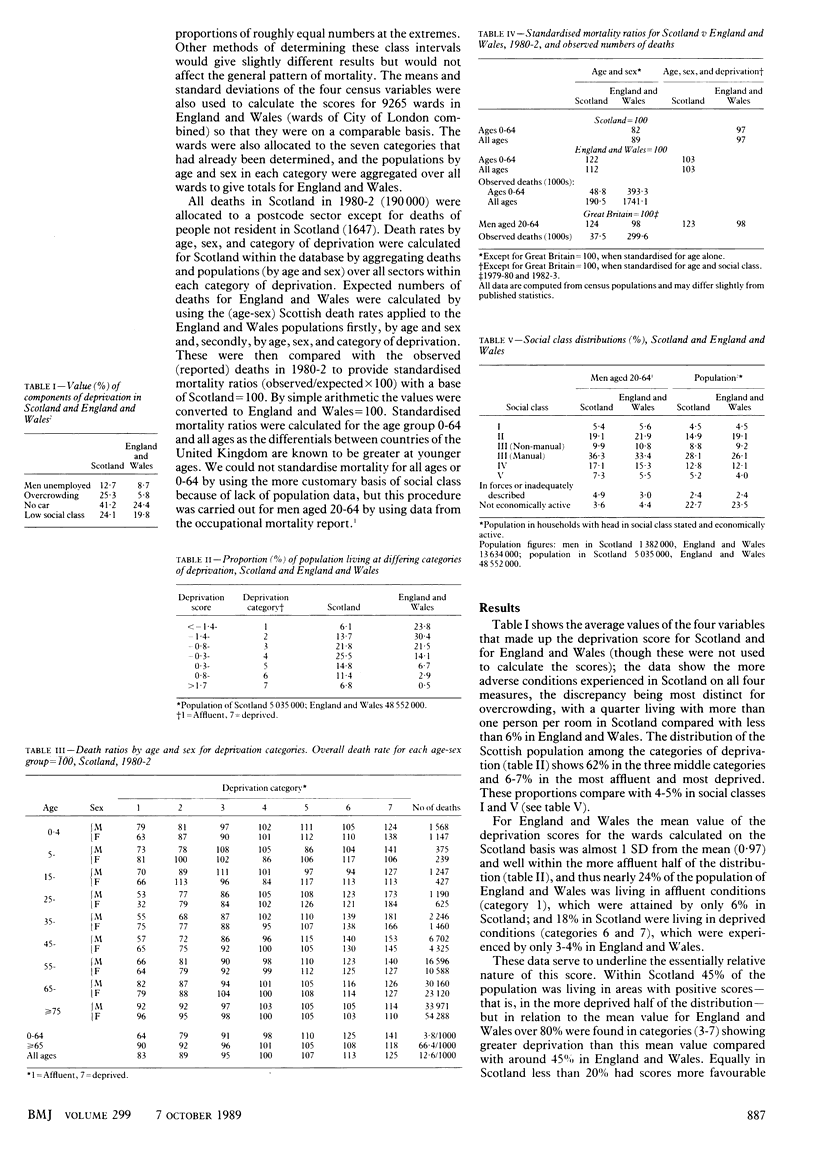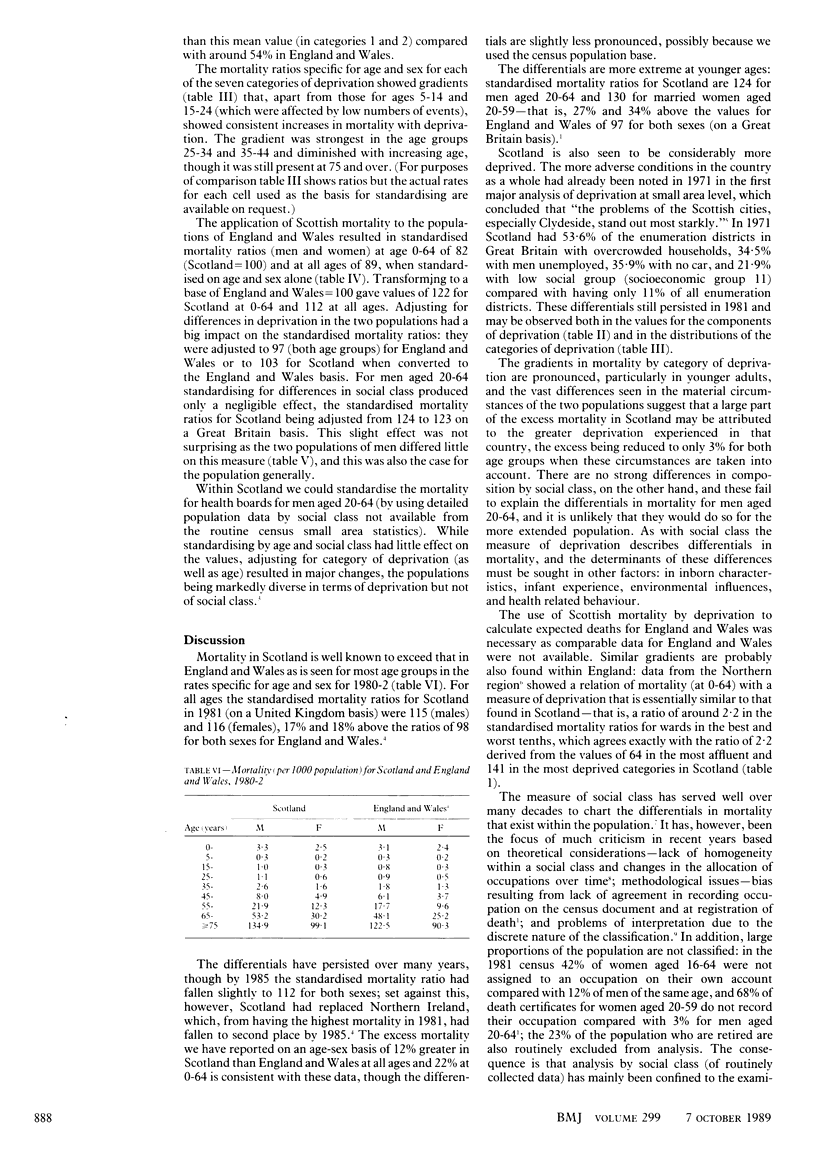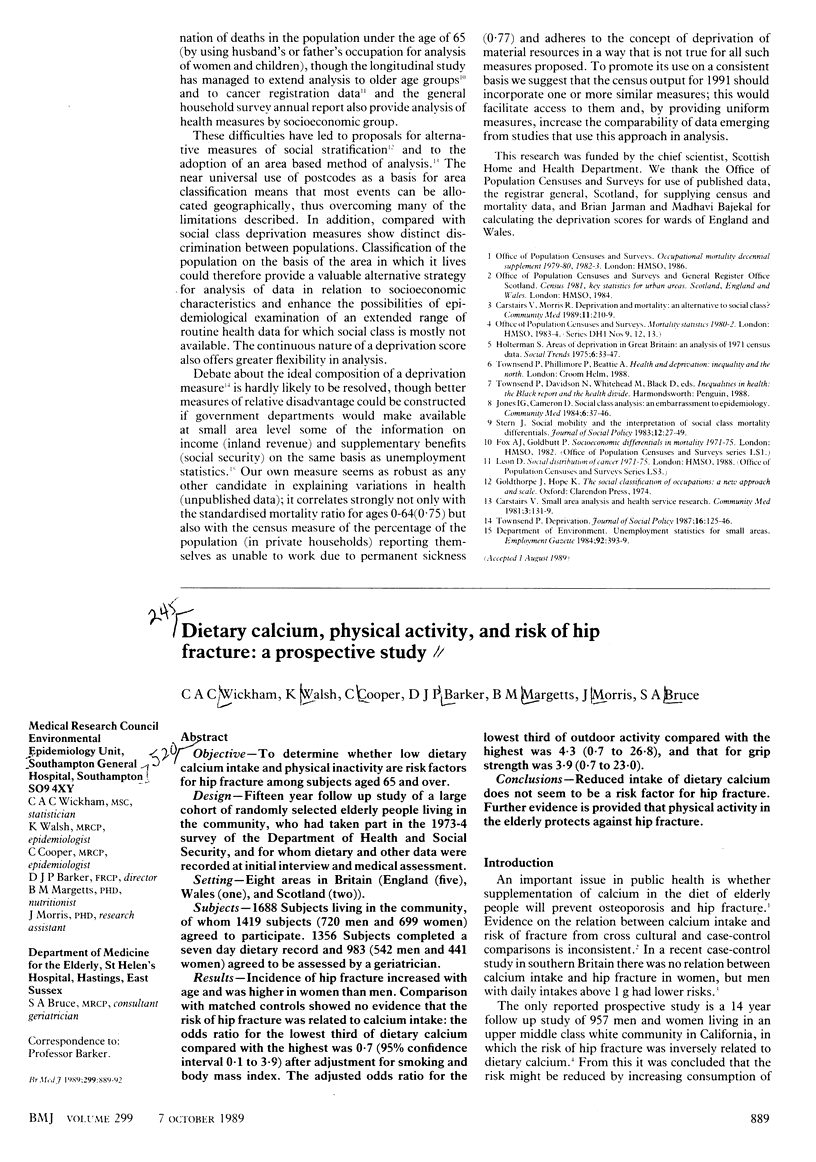Abstract
To detect reasons for the difference in mortality between Scotland and England and Wales a measure of deprivation was studied, comprising overcrowding, unemployment of men, low social class, and not having a car. Data for Scotland for 1980-2 showed this measure to be strongly associated with mortality, with gradients being particularly steep in young adults. Deprivation was much severe in Scotland than in England and Wales. These findings suggest that much excess mortality may be ascribed to more adverse conditions. Standardising the mortality ratios to take account of the relative affluence and deprivation of the two populations led to the differentials observed being radically adjusted, while standardising for social class had little effect. Deprivation measures based on areas overcome many of the limitations associated with social class analysis and also show much greater discrimination between populations. Measures of deprivation apparently provide a powerful basis for explanation of health differences. Such measures should therefore form part of the 1991 census output to facilitate their use on a consistent basis.
Full text
PDF



Selected References
These references are in PubMed. This may not be the complete list of references from this article.
- Carstairs V. Small area analysis and health service research. Community Med. 1981 May;3(2):131–139. [PubMed] [Google Scholar]
- Jones I. G., Cameron D. Social class analysis--an embarrassment to epidemiology. Community Med. 1984 Feb;6(1):37–46. [PubMed] [Google Scholar]


